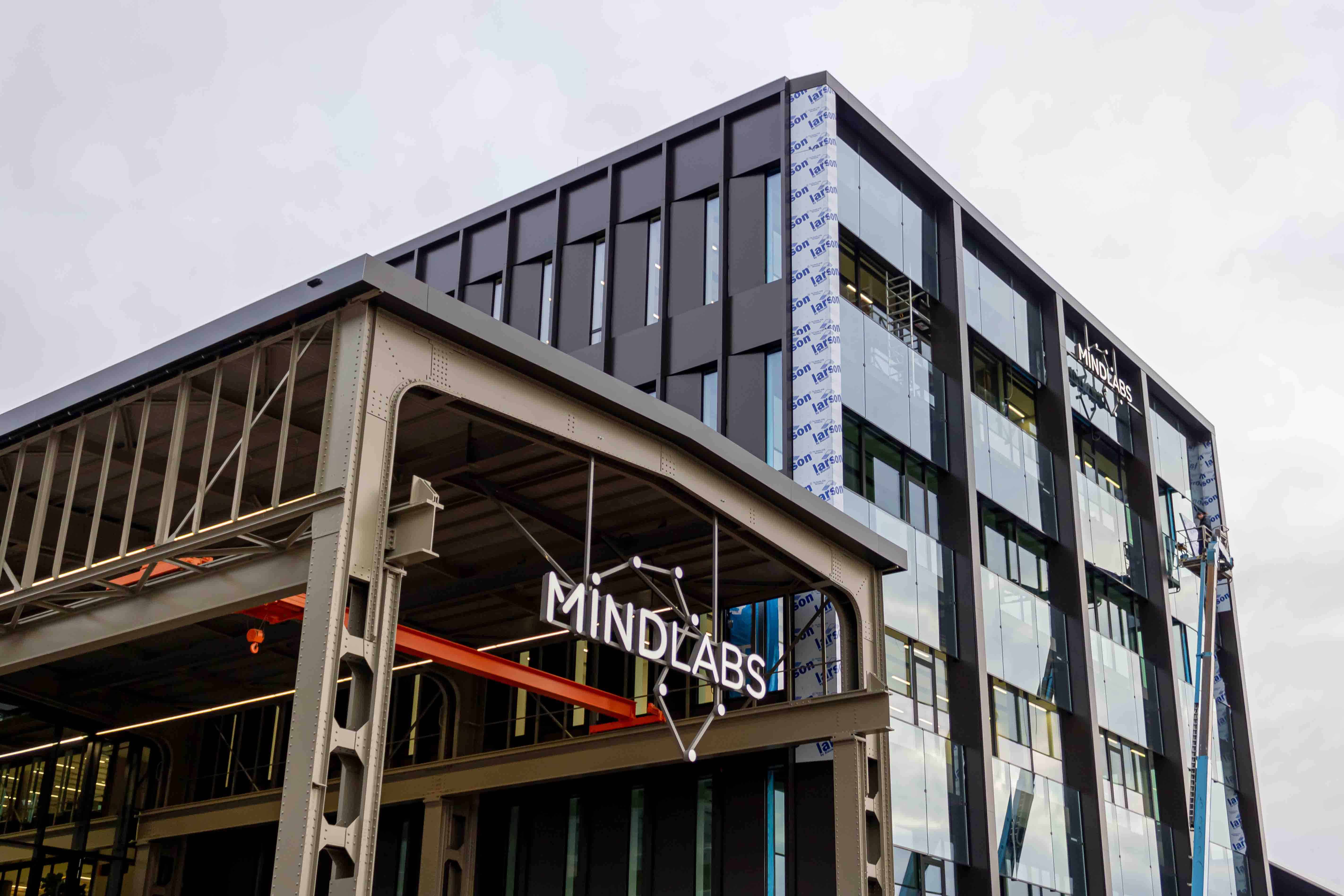
While most people have become very aware of the importance of Artificial Intelligence (AI) in all sorts of processes that make their lives easier, there’s still a world to be won when AI in manufacturing is concerned. That is why the AI Innovation Center at High Tech Campus Eindhoven is preparing a series of events, publications, and roundtables to address the challenges and opportunities in this industry.
The role of the AI Innovation Center is to support organizations in introducing or expanding their AI efforts. Because of the enormous impact AI can have on the manufacturing industry, there’s a new, special series of events and publications to support manufacturing companies using the potential of AI.
In this Innovation Series, participants will look closely at topics like the connected worker, smart factory initiatives, supply chain instability, cybersecurity, and sustainability – all directly connected to the manufacturing industry. The Innovation Series will start in September and runs until December. Anybody active in this field of expertise is welcome to join us for one of the sessions.
“4IR technologies are expected to create up to $3.7 trillion by 2025. AI alone can generate $1.2-$2 trillion in value for manufacturing and supply chain management.”
McKinsey, report
Improve your margins and efficiency with AI
Every manufacturer wants to reduce costs, improve margins, reduce risks, and expand overall production efficiency. These goals are not new, but AI brings new capabilities to achieve them while also improving the company’s sustainability. AI solutions and services offer a way to process and analyze large volumes of data to find patterns, predict consumer behavior, or detect anomalies in production processes, all in real-time. These new capabilities can help manufacturers gain end-to-end visibility of all manufacturing operations in facilities across all locations. In short: AI-powered systems can learn, adapt, and improve continuously while operating at full capacity.
“Companies using AI have witnessed cost savings and revenue growth. 16% of those surveyed noticed a 10-19% decrease in costs, whereas 18% saw a 6-10% increase in overall revenue.”
McKinsey, report
How can AI be used in the manufacturing industry?
In manufacturing, AI can offer extreme value in planning and production. The most important AI use cases in the manufacturing industry are about intelligent, self-optimizing machines that automate production processes. On top of that, AI helps you in forecasting efficiency losses for better planning, and in detecting quality defects to facilitate predictive maintenance.
In the series, the AI Innovation Center will explore the most prominent use cases from each of these five categories:
- The Connected Worker,
- Smart factory initiatives,
- Supply chain management,
- Cyber security,
- Sustainability.
- The Connected Worker
Factory operators rely on their experience and intuition to monitor signals across numerous screens and adjust equipment settings manually. But human-intensive systems can be error-prone, lead to equipment malfunction, and reduce overall factory efficiency. Also, a strong reliance on experience makes it harder to transition factory operators, let alone if a skilled operator leaves the company. With AI, manufacturers can manage labor costs differently while improving overall productivity and efficiency at their plants.
- The Smart Factory
Connected – or smart – factories distinguish themselves through sensors and cloud storage. Some of the most important results are real-time shop floor visibility, improved asset utilization, and alerting when immediate interventions are needed. Moreover, AI enables factory workers a single source of truth for all production data.
- Supply Chain Management
AI can predict optimal delivery routes, track driver performance in real-time, and assess weather and traffic reports besides historical data to forecast future delivery times accurately. AI can also give manufacturers greater control over their supply chains, from capacity planning to inventory tracking and management. Every manufacturer wants to get notified when something is wrong somewhere in the chain; AI promises to deliver just that.
- Cyber security
As the number of IIoT devices increases, the threats toward factories will keep rising. AI-driven risk detection mechanisms can help secure production facilities and mitigate threats. AI supports manufacturers to spot attacks across cloud services and IoT devices and interrupt them in seconds. The system can also alert the right teams to act immediately to prevent any further damage.
- Sustainability
AI-based systems are highly compute-intensive. Processing huge amounts of data means the adoption of AI within a corporation will increase the company’s energy use. At the same time, there are many ways in which AI is likely to have a positive impact on the environment. The series will show participants how to keep the balance and, ultimately, be net-positive in sustainability.
Preparation for the future
For those still struggling with the role of AI within their manufacturing company and those that have already made the first steps, the AI in Manufacturing Innovation Series is a great starting point for your next steps.








